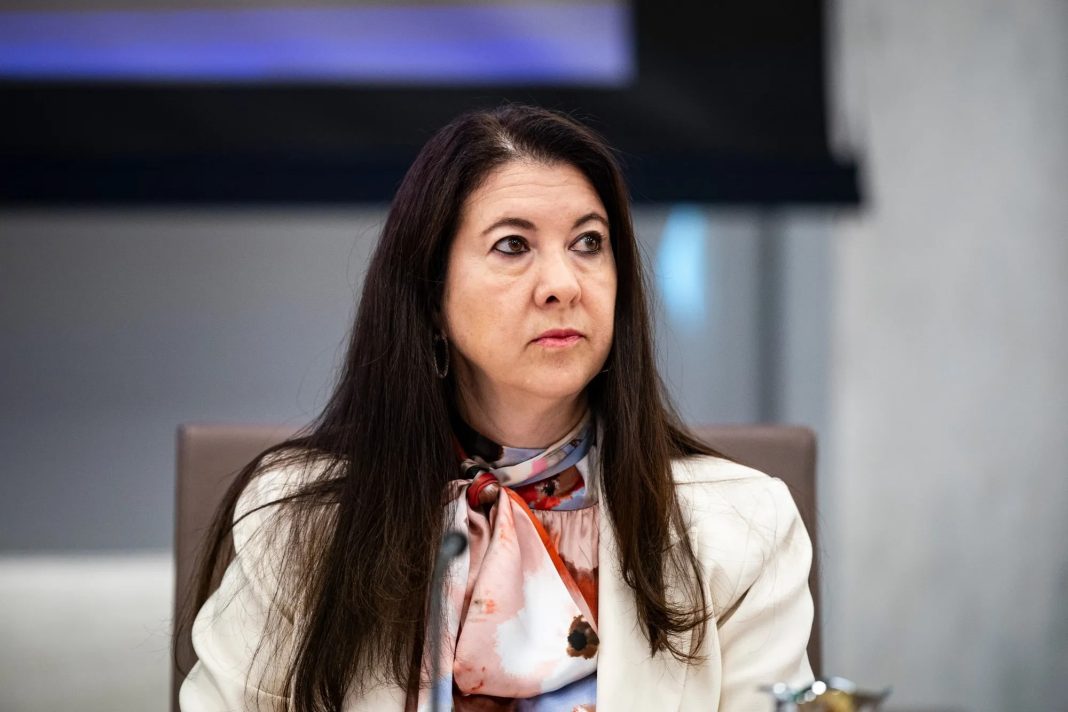The integrity of central banks, the custodians of a nation’s economic stability, is paramount. In a development that has sent ripples across global financial markets, former Federal Reserve Governor Frederic S. Kugler finds himself under intense scrutiny for alleged prohibited stock trades. These trades, involving high-profile companies like Apple and Caterpillar, are reported to have occurred just before crucial Federal Open Market Committee (FOMC) decisions – information that could significantly impact market movements. This controversy reignites critical discussions around ethical conduct, transparency, and public trust within the highest echelons of financial governance, a dialogue that resonates profoundly even in India’s evolving financial landscape.
The Allegations: Unpacking Kugler’s Controversial Trades
Reports emerging from the U.S. indicate that Frederic S. Kugler, during his tenure as a Federal Reserve Governor, allegedly engaged in stock trading activities that are now deemed to have violated stringent ethics rules. The core of the accusation lies in the timing: trades in stocks such as Apple Inc., Caterpillar Inc., and other prominent equities were purportedly executed in the days leading up to significant FOMC meetings. These are the very gatherings where the Fed deliberates on and announces key monetary policy decisions, including interest rate changes, which can have immediate and profound effects on market valuations.
For a central bank official, access to such pre-decision information constitutes privileged insight. To trade on this knowledge, or even to appear to do so, represents a severe conflict of interest and potential insider trading. The Federal Reserve, like many central banks globally including the Reserve Bank of India (RBI), has robust, albeit evolving, ethics guidelines designed to prevent officials from using their position for personal financial gain. Following previous trading controversies involving other Fed officials in 2021, these rules were further tightened, placing stricter limits on personal financial transactions for senior policymakers. Kugler’s alleged activities fall squarely into the category these enhanced regulations aimed to prevent, raising questions about adherence and oversight.
Erosion of Trust: A Global Concern, an Indian Perspective
The implications of such allegations extend far beyond the individual involved or the U.S. borders. For financial markets, trust is the bedrock upon which stability is built. When senior officials tasked with impartial decision-making are accused of personal enrichment through privileged information, it inevitably erodes public and investor confidence. This sentiment is not confined to developed markets; it reverberates globally, influencing how investors perceive regulatory integrity and governance standards across different economies.
From an Indian perspective, these developments offer a poignant reminder of the continuous effort required to uphold ethical standards in financial governance. India’s own regulatory bodies, such as the Securities and Exchange Board of India (SEBI) and the Reserve Bank of India (RBI), have been actively strengthening their frameworks to combat insider trading, market manipulation, and conflicts of interest. The Kugler case underscores the universal challenge of ensuring accountability and transparency, even in institutions considered unimpeachable. A scandal of this magnitude in a major global economy can subtly shift investor sentiment, potentially leading to increased scrutiny on emerging markets, including India, regarding their own robust compliance mechanisms.
“The bedrock of any financial system is trust,” remarked Dr. Ananya Sharma, a Bengaluru-based financial ethics consultant. “When officials entrusted with shaping monetary policy are accused of personal gain from privileged information, it doesn’t just erode public confidence in that institution, but casts a long shadow over the entire global financial ecosystem, demanding rigorous oversight and clear accountability from New Delhi to Washington D.C.” Her words highlight the interconnectedness of global finance and the shared responsibility for ethical conduct.
Towards Greater Scrutiny and Accountability
The scrutiny surrounding Frederic Kugler is not merely about an individual’s alleged missteps; it represents another critical juncture for central bank ethics worldwide. Investigations into such matters often lead to a re-evaluation of existing policies, strengthening of enforcement mechanisms, and perhaps even more restrictive guidelines on personal investing for policymakers. The outcome will be keenly watched, as it will likely set a precedent for how future allegations of similar nature are handled and how central banks globally, including the RBI, might further refine their own internal codes of conduct.
The need for central bank officials to operate beyond reproach is universal. Their decisions impact billions of lives and trillions in assets. Maintaining an unimpeachable standard of integrity is crucial not just for the perceived legitimacy of monetary policy but for the actual stability of economies. This incident serves as a stark reminder that while financial acumen is vital, ethical fortitude is non-negotiable for those at the helm of economic power.
In conclusion, the allegations against former Fed Governor Kugler underscore a persistent challenge within global finance: safeguarding integrity against the allure of personal profit. As the financial world watches the unfolding inquiry, the global implications, particularly for nations like India committed to fostering transparent and ethical markets, are undeniable. It reinforces the universal demand for unwavering accountability at every level of financial governance, ensuring that public trust remains inviolate.




